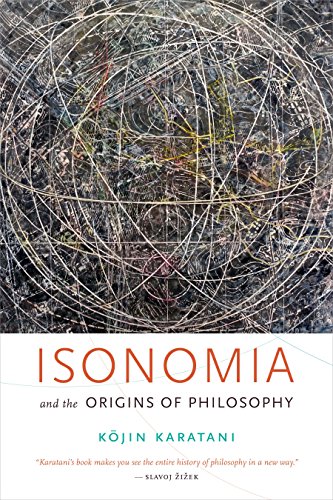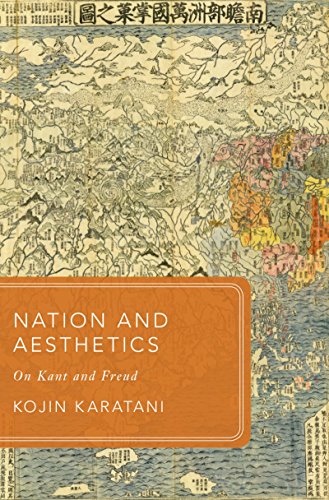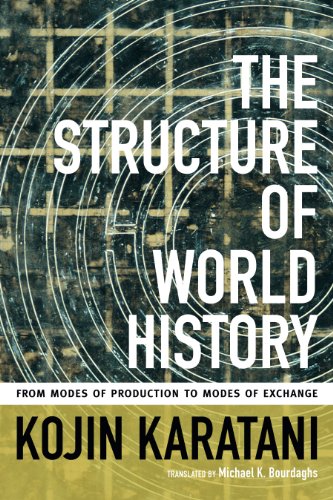Books
| Marx: Towards the Centre of Possibility (English Edition) Originally published in 1974, Kojin Karatani’s Marx: Towards the Centre of Possibility has been amongst his most enduring and pioneering works in critical theory. Written at a time when the political sequences of the New Left had collapsed into crisis and violence, with widespread political exhaustion for the competing sectarian visions of Marxism from 1968, Karatani’s Marx laid the groundwork for a new reading, unfamiliar to the existing Marxist discourse in Japan at the time. Karatani’s Marx takes on insights from semiotics, deconstruction, and the reading of Marx as a literary thinker, treating Capital as an intervention in philosophy that could be read as itself a theory of signs. Marx is unique in this sense, not only because of its importance in post-68 Japanese thought, but also because the heterodox reading of Marx that Karatani debuts in this text, centered on his theory of the value-form, will go on to form the basis of his globally-influential work. Publisher : Verso Books (March 2020) | |
| Isonomia and the Origins of Philosophy (2017) In Isonomia and the Origins of Philosophy—published originally in Japanese and now available in four languages—Kojin Karatani questions the idealization of ancient Athens as the source of philosophy and democracy by placing the origins instead in Ionia, a set of Greek colonies located in present-day Turkey. Contrasting Athenian democracy with Ionian isonomia—a system based on non-rule and a lack of social divisions whereby equality is realized through the freedom to immigrate—Karatani shows how early Greek thinkers from Heraclitus to Pythagoras were inseparably linked to the isonomia of their Ionian origins, not democracy. He finds in isonomia a model for how an egalitarian society not driven by class antagonism might be put into practice, and resituates Socrates's work and that of his intellectual heirs as the last philosophical attempts to practice isonomia's utopic potentials. Karatani subtly interrogates the democratic commitments of Western philosophy from within and argues that the key to transcending their contradictions lies not in Athenian democracy, with its echoes of imperialism, slavery, and exclusion, but in the openness of isonomia. Publisher : Duke University Press (August 11, 2017) | |
| Nation and Aesthetics: On Kant and Freud (2017) Nation and Aesthetics is a unique attempt to examine the ambiguous nature of nationalism and nation by examining them through aesthetics. In this translation by Jonathan E. Abel, Darwin H. Tsen, and Hiroki Yoshikuni, Karatani grasps the modern social formation as a nexus of three different "modes of exchange", namely capital-nation-state. Nation here plays the role of complementing capitalism and the state. Benedict Anderson defined nation as an "imagined community". Through rethinking Kant, Karatani suggests that "imagination" here is not a mere fancy, but very real, in the sense that it mediates state and capital. Usually imagination is regarded as fancying what is not present here. Kant grasped imagination as a faculty to imagine what we can understand but cannot sense; that is, to say, a faculty to mediate reason and sensibility. This observation provided the foundation to Modern aesthetics, which in the course of time became an important source of nationalism. In Italy, Germany, and Japan, nationalism appeared as fascism. They found in aesthetics a moment to go beyond capitalism and the state.The key to go beyond nation, Karatani argues, lies also in the thoughts of Kant, a cosmopolitan and an advocate of a world republic. It is well-known that the League of Nations was formed after First World War under the influence of his "Perpetual Peace". Karatani draws attention to the overlooked fact that around the same time Freud made a radical revision of his notion of the "superego". Karatani introduces article nine of Japan's postwar constitution, which renounces the right to wage war, as a crystallization of Kant's ideal of peace and Freud's superego. By providing a unique explanation of, and ways to counter, current nationalistic and imperialistic tendencies, Nation and Aesthetics argues that theories of Kant and Freud, which are usually understood to contrast, are deeply linked and suggest ways to go beyond capital-nation-state. Publisher : Oxford University Press (May 17, 2017) | |
| The Structure of World History: From Modes of Production to Modes of Exchange (2014) In this major, paradigm-shifting work, Kojin Karatani systematically re-reads Marx's version of world history, shifting the focus of critique from modes of production to modes of exchange. Karatani seeks to understand both Capital-Nation-State, the interlocking system that is the dominant form of modern global society, and the possibilities for superseding it. In The Structure of World History, he traces different modes of exchange, including the pooling of resources that characterizes nomadic tribes, the gift exchange systems developed after the adoption of fixed-settlement agriculture, the exchange of obedience for protection that arises with the emergence of the state, the commodity exchanges that characterize capitalism, and, finally, a future mode of exchange based on the return of gift exchange, albeit modified for the contemporary moment. He argues that this final stage—marking the overcoming of capital, nation, and state—is best understood in light of Kant's writings on eternal peace. The Structure of World History is in many ways the capstone of Karatani's brilliant career, yet it also signals new directions in his thought. Publisher : Duke Universiyu Press (March 5, 2014) | |
| History and Repetition (2011) Kojin Karatani, one of Japan's most influential thinkers, wrote the essays collected in History and Repetition during a period of radical historical change, triggered by the collapse of the Cold War order and the death of the Showa emperor in 1989. Through an original reading of Marx, Karatani developed a theory of history based on the repetitive cycle of crises attending the expansion and transformation of capital. His work led to a rigorous theoretical analysis of political, economic, and literary forms of representation—joined by a detailed, empirical study of Japan's modern history—that recast historical events as a series of repeated forms forged at moments of transition in the stages of global capitalism. History and Repetition helped cement Karatani's status as one of Japan's premier intellectuals, producing original work that traverses philosophy, political economy, history, and literature. The first complete translation into English, carried out with the cooperation of Karatani himself, this book begins with an innovative reading of Marx's The Eighteenth Brumaire of Louis Bonaparte, tracing the thinker's early formulation of a theory of the state. Following with a study of violent crises as they recur after major transitions of power, Karatani develops his theory of historical repetition, launching a groundbreaking interpretation of fascism (in both Europe and Japan) as the spectral return of the absolutist monarch amid the crisis of representative democracy. For Karatani, fascism represents the most violent materialization of the repetitive mechanism of history. At the same time, he also seeks out singularities operating outside historical repetition's brutal inevitability, whether they find representation in literature or, more precisely, in the process of literature's demise. Closely reading the work of Oe Kenzaburo, Mishima Yukio, Nakagami Kenji, and Murakami Haruki, Karatani compares what is recurrent and universal with what is singular and unrepeatable, while developing a compelling analysis of modern literature's decline (countering his influential account of modern literature's emergence in Origins of Modern Japanese Literature). Merging theoretical arguments with a concrete analysis of cultural and intellectual history, these essays provide a brilliant introduction to Karatani's thought and a multidisciplinary perspective on world history. Publisher : Columbia University Press (November 29, 2011) | |
| Transcritique: On Kant and Marx (2003) Fredric Jameson comments on Transcritique: "An immensely ambitious theoretical edifice in which new relations between Kant and Marx are established, as well as a new kind of synthesis between Marxism and anarchism. The book is timely from both pratcial and theoretical perspectives, and stands up well against a tradition of Marx exegesis that runs from Rosdolsky and Korsch to Althusser and Tony Smith." Publisher : The MIT Press (July 2003) | |
| Architecture as Metaphor (1995) Based on the discussions of postmodern philosophy, Karatani discusses architectural structure of society and possibilities of organizational (r)evolution of social structures. Including an introduction by the architect Arata Isozaki inside and covered with beautiful design outside, this has been one of the recent bestsellers of the MIT Press. Publisher : The MIT Press (October 1995) | |
| Origins of Modern Japanese Literature (1993) Karatani's brilliant account of the birth of modern literature and nation. The issues of subjective interiority, nationalism, illness, and modernity are discussed with an insightfully wide range of knowledge and intelligence. Includes authorial comments to the Japanese version and a very informative preface by Fredric Jameson. Publisher : Duke University Press (May 1993) |











